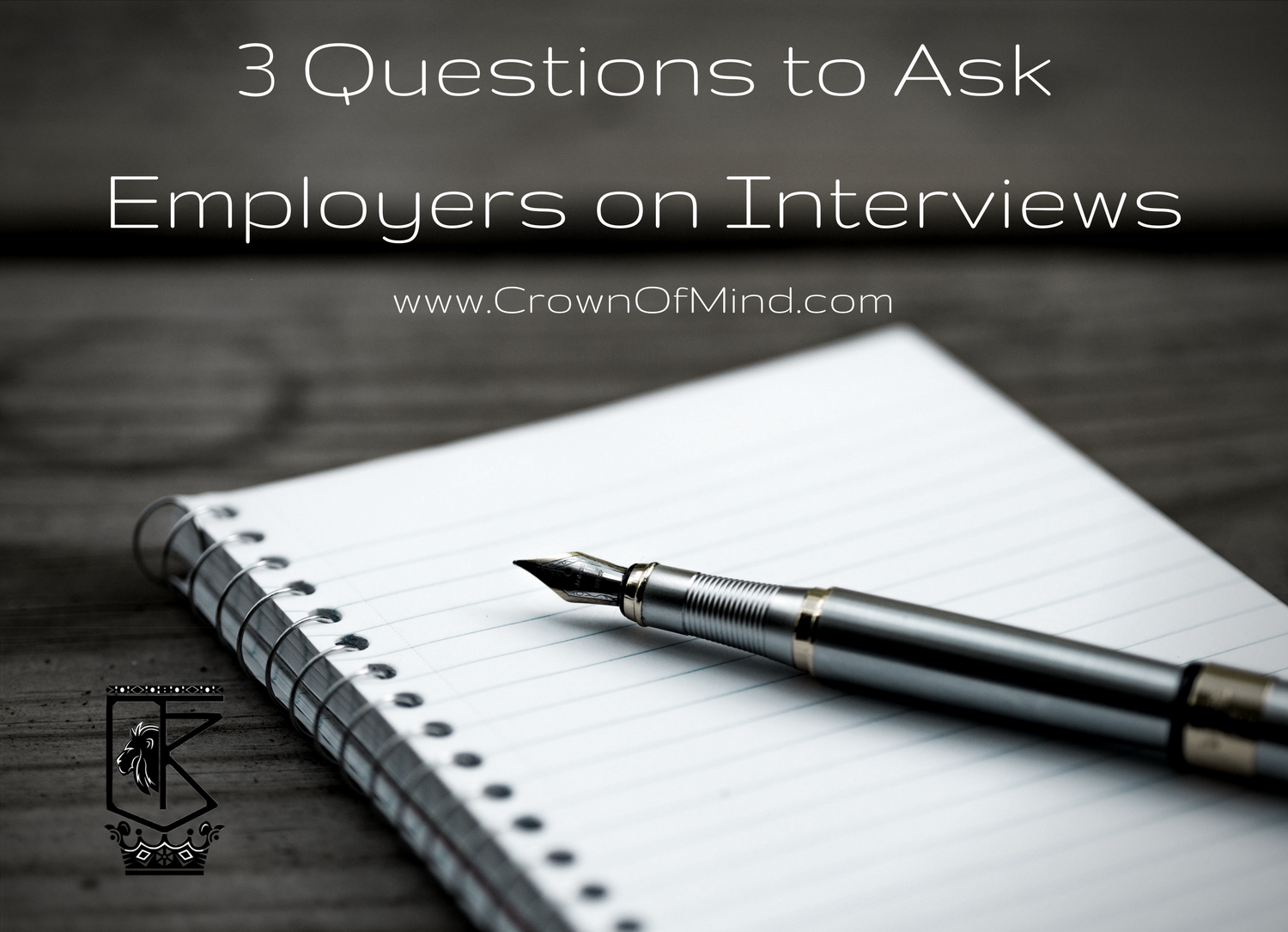An interview is an opportunity for the candidate and employer to evaluate each other and confirm if value matches the role offered. Mentioned in one of my previous writings, this engagement is a reciprocal relationship and should be treated as such. When the candidate forgets this, she becomes susceptible to the employers’ manipulations about money, experiences, the resume, and overall twisting the perceived value in a way that favors only the employer. When the employer forgets this, she finds ways to extract as much value as possible while returning the least amount of value. To gain the best deal, the situation demands that you posture your value as equally important.
There will come a time during the meeting when you’ll be asked if you have questions to ask. Sometimes we may not have any questions to ask on the spot and respond by saying “No” or “No you answered everything already.” I encourage you to take advantage of this opportunity to investigate, to conduct your own interview.
The interview flow may be such that you’re moved to ask questions in a more organic way, perhaps a back-and-forth within the conversation. Whatever your style, it is important to ensure you ask these 3 questions among others:
What are the professional development opportunities available?
Securing the job is only the first step in your professional development. You also want to know what resources are available for your continuous growth. Does the company offer online training? Certifications? Are they college tuition-friendly? Do they send staff out on regional training and trips? Are there training opportunities available onsite? Do they have development meetings? Is professional growth even important to them, or do they expect that you’ll work your position for years without advancement? You want to know these because you’re building a PD strategy that will involve not just working the job, but also positioning for new opportunities.
How would you describe the work culture here?
Very important. What IS a work culture? It’s the collection of values, principles and general way things are done in an organization. The work culture sets the tone for how and why things are done the way they are. The punitive, repercussions, awards and professional statuses are all influenced by a workplace’s culture.
Does the company value autonomy? Is it more of a micromanaged environment? Does the staff go on trips once per year as a team, and is it funded by the company budget? What kind of work tends to manifest bonuses? Are bonuses even incorporated into the environment? How do peers relate to each other?
You want to understand the culture as much as possible because that will clarify for you if your temperament is most compatible with the environment. What kind of work environment would you be most effective in?
What are some initiatives the company is currently focused on?
This Q will likely spark more interest in you. Of all the candidates met, you’re the one who is interested enough in the actual company to inquire about new company projects. It’s an insightful line of thought that will (if the interviewer truly enjoys his work) generate enthusiastic discussion about what is currently on the company’s agenda. It also can help you pinpoint where else you could potentially add value with your skills.
Add these three to your arsenal. They will help you confirm whether your energy is worth investing in the company or not.







[…] The error of the job searcher’s ways exists not in just the question, but who you ask the question to. […]